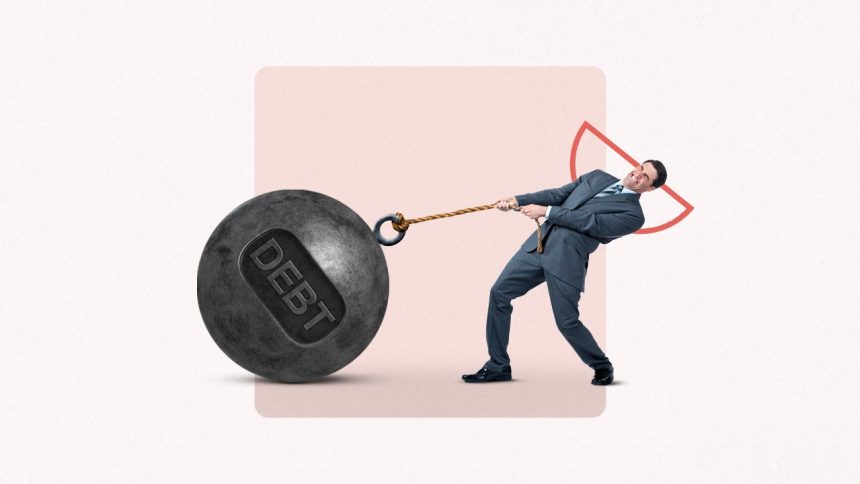Key takeaways
- Debt consolidation takes multiple streams of debt and combine them into one loan with a fixed, monthly payment.
- Only consider a debt consolidation loan if you’re offered a lower interest rate than your previous loans.
- Debt consolidation loans can help you manage your debt, but only if you can afford to make the monthly payments now and in the future.
Debt consolidation is a popular way to manage and organize high-interest debt. This strategy rolls multiple debts into a single account, often with a lower interest rate, to streamline repayment.
Understanding how debt consolidation works is crucial to finding your best approach. You have several types of loans to choose from. Thankfully, it’s not hard to find someone who’s taken out a debt consolidation loan and can share their experience. Bankrate loans editor Rhys Subitch tells us how they’ve benefited and what they’ve learned along the way.
What is debt consolidation and how does it work?
What is debt consolidation? Debt consolidation combines multiple loans into one monthly payment.
Debt consolidation only makes sense if the interest costs of your new loan or line of credit are lower than the interest costs of the debts you’re consolidating. To optimize your total savings, focus on consolidating the debts with the highest interest rates first.
Keep your loan term as short as possible. You may be offered an extended loan term. While this may be more affordable in the moment, you’ll end up paying more in interest in the long run.
Many debt consolidation loans are fixed-rate, which means the interest rate never changes and you make the same payment every month. So if you have three credit cards with different interest rates and minimum payments, you could use a debt consolidation loan to pay off those cards. You’d have just one monthly payment to manage instead of three.
- Card 1 has a balance of $5,000 with an APR of 20 percent.
- Card 2 has a balance of $2,000 with an APR of 25 percent.
- Card 3 has a balance of $1,000 with an APR of 16 percent.
If you pay down these credit card balances over 12 months, your interest costs would total $927. Suppose you take out a 12-month personal loan for the amount you owe — $8,000 — with a 12 percent APR. If you pay off the loan in one year, you reduce the interest cost to just $711.
To calculate your potential savings through consolidation, use a credit card payoff calculator and a personal loan calculator.
Debt consolidation vs. personal loan
Debt consolidation is a form of debt refinancing in which the borrower takes out a loan, credit card or line of credit and uses it to pay off other debts. This helps debt repayment as the borrower only has to worry about making a single payment each month.
Plus, there’s the potential of saving money down the line if they manage to secure a lower interest rate.
There are several ways to consolidate debt, including personal loans.
Personal loans are a type of installment loan, with a fixed rate and repayment term. Some lenders market personal loans specifically for debt consolidation. Debt consolidation loans generally have terms between one and seven years, and many will let you consolidate up to $50,000.
But debt consolidation isn’t the only way borrowers can use personal loans. Personal loans can be used for almost any purpose, from financing large purchases to home improvement projects.
How to manage a debt consolidation loan
The most important thing after taking out a debt consolidation loan is to avoid taking on more debt. Extra debt could defeat the purpose of taking the loan in the first place.
Likewise, it’s important to stay on top of payments. This helps you make progress and protects your credit score from taking a dip. One way to do this is by scheduling automatic payments for your debt consolidation loan.
“Using automatic payments is truly an anxiety buster for me. I don’t have to worry about missing a payment, and it’s one less task each month,” Subitch says.
They add that they now only have one payment instead of three and can pay a little extra each month when they have the funds.
Furthermore, some lenders offer a rate discount for using this form of payment, increasing your savings.
However, life is unpredictable. You may experience a hardship that makes it difficult to keep up with your monthly bill.
If that happens, being proactive and contacting your lender is crucial. Though it may seem uncomfortable, lenders often have options to temporarily reduce or pause payments in case of hardship. This, in turn, will keep your account current while you get back on your feet.
How to tell if a debt consolidation loan is right for you
A debt consolidation loan isn’t the best option for everyone. In Subitch’s case, it made sense because it aligned with their long-term financial goals.
“My debt consolidation payment is a fairly large chunk of change,” Subitch says. “In total, my minimum payments would have actually been less than the debt consolidation loan, but it also would have taken significantly longer to pay off the entirety of it.”
A debt consolidation loan is worth considering if:
- You qualify for a lower interest rate. If you have good or excellent credit and plan to consolidate credit card debt, you’ll likely get a lower interest rate on a debt consolidation loan than you currently have on all your credit cards.
- You want a predictable monthly payment. The interest rate is fixed on most debt consolidation loans, which means you’ll get a predictable monthly payment that you can work into your budget. But a debt consolidation loan only makes sense if you can afford this amount.
- You’d prefer to pay a single creditor each month. Instead of scrambling to pay several creditors by the payment due dates, you’ll only pay one creditor each month. This could make it easier to avoid late payment fees and adverse credit reporting.
However, if your credit score is fair or worse, it’s unlikely that you’ll qualify for a debt consolidation loan with a lower interest rate than you currently have.
It’s also best to avoid taking out a debt consolidation loan if your estimated monthly payment is more than what you can comfortably afford. In this case, you’re better off exploring other options, like reaching out to creditors to negotiate a payment arrangement.
The bottom line
Before you commit to consolidating, make sure you understand how debt consolidation loans work, explore your loan options and details and assess your finances.
“Sit down and work out your budget,” Subitch advises. “Make sure that even if it’s more than your minimum monthly payments, it’s manageable.”
If you can qualify for a debt consolidation loan with a lower interest rate and a reasonable monthly payment, it could be a great way to streamline debt repayment and save money in interest. But if after exploring multiple offers, payments are still unmanageable, it may be best to look into alternatives for relief.
Read the full article here
















